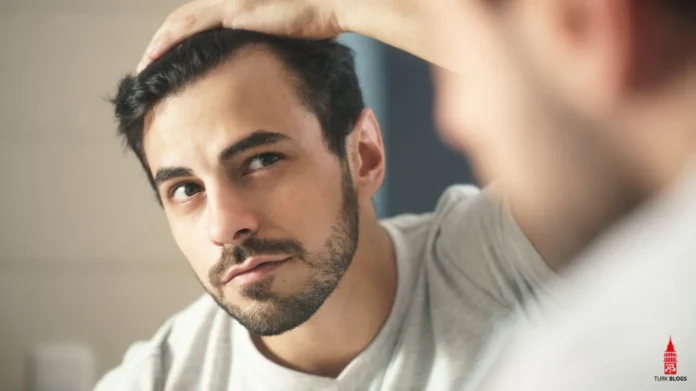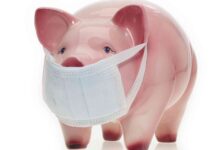Hair loss in men, commonly referred to as male pattern baldness, is a prevalent condition affecting millions worldwide. Characterized by a gradual thinning of the hairline, this condition can lead to significant psychological stress for those experiencing it. Hair loss can begin as early as the late teens or early twenties, with the condition becoming more noticeable with age.
What is Hair Loss?
Hair loss, scientifically known as alopecia, is the loss of hair from the scalp or other parts of the body. While hair naturally falls out and regenerates, excessive loss can lead to thinning or bald spots. Male pattern baldness, or androgenic alopecia, is the most common type of hair loss in men, typically manifesting as a receding hairline or baldness on the top of the head.
The Science Behind Hair Growth
Understanding the process of hair growth is essential to grasp why hair loss occurs. Hair grows from follicles located beneath the scalp, with each strand undergoing a life cycle comprising three stages: anagen (growth), catagen (transition), and telogen (resting). Disruption in this cycle, often due to hormonal changes or genetic predisposition, can lead to hair loss.
Common Patterns of Hair Loss
Hair loss in men typically follows recognizable patterns. The most common is a receding hairline, often beginning at the temples and progressing towards the crown. Another pattern is thinning at the crown, which may eventually spread to the entire top of the head. These patterns are primarily driven by genetic factors, though environmental and lifestyle influences can exacerbate the condition.
Causes of Hair Loss in Men
Understanding the underlying causes of hair loss is crucial in managing and preventing the condition. While genetics play a significant role, various other factors can contribute to hair loss.
Genetic Factors
Genetics is the leading cause of hair loss in men. If a man’s parents or grandparents experienced hair loss, he is more likely to face the same issue. The presence of the androgen receptor gene is often linked to male pattern baldness, making it a hereditary condition passed down through generations.
Hormonal Imbalances
Hormonal changes, particularly those involving androgens like testosterone, can lead to hair loss. Dihydrotestosterone (DHT), a byproduct of testosterone, binds to hair follicles, causing them to shrink and produce thinner hair until growth stops altogether.
Environmental Causes
Environmental factors such as pollution, exposure to harsh chemicals, and ultraviolet (UV) radiation can damage the hair follicles, leading to hair loss. Additionally, lifestyle choices like smoking and excessive alcohol consumption can negatively impact hair health.
Lifestyle and Stress
Stress is a significant contributor to hair loss. High levels of stress can trigger conditions like telogen effluvium, where hair prematurely enters the resting phase and falls out more quickly. Poor diet, lack of sleep, and inadequate exercise further compound the issue, weakening the hair and leading to increased shedding.
Symptoms and Early Signs
Recognizing the early signs of hair loss is key to seeking timely intervention and treatment. The sooner you identify the symptoms, the more effective the treatment options can be.
Recognizing the First Signs
Early signs of hair loss may include excessive hair shedding, thinning at the temples or crown, and a noticeable receding hairline. If you observe that your hair takes longer to grow back after a haircut or you frequently find large amounts of hair on your pillow or in the shower, it may be time to consult a professional.
When to Seek Professional Advice
If hair loss becomes persistent and noticeable, it’s advisable to seek professional advice. A dermatologist or trichologist can diagnose the underlying cause of hair loss and recommend appropriate treatment options. Early consultation can prevent further hair loss and help in maintaining hair health.
Psychological Impact of Hair Loss
Hair loss is not just a physical condition but also one that can have a profound psychological impact. Understanding the emotional and social aspects of hair loss can help in managing the condition more effectively.
The Emotional Toll of Hair Loss
For many men, hair is a symbol of youth and vitality. Losing it can lead to feelings of inadequacy, low self-esteem, and even depression. The psychological impact of hair loss can be severe, affecting a man’s confidence and social interactions.
How Society Views Hair Loss in Men
Societal views on hair loss can exacerbate the emotional distress associated with it. While some cultures embrace baldness as a sign of maturity and wisdom, others may stigmatize it, associating it with aging or a loss of virility. These perceptions can influence how men cope with hair loss and their willingness to seek treatment.
Popular Treatments for Hair Loss
With advancements in medical science, several treatment options are available for men experiencing hair loss. These range from over-the-counter products to more advanced medical procedures.
Over-the-Counter Solutions
Minoxidil, commonly known as Rogaine, is one of the most popular over-the-counter treatments for hair loss. It is applied topically to the scalp and has been proven to stimulate hair growth and slow down hair loss. While effective, results may vary, and continuous use is often required to maintain hair growth.
Prescription Medications
Finasteride, marketed as Propecia, is a prescription medication that inhibits the production of DHT, a hormone responsible for hair follicle shrinkage. It is one of the most effective treatments for male pattern baldness but requires a prescription and comes with potential side effects.
Natural Remedies
Some men prefer natural remedies to combat hair loss. These include essential oils like rosemary and peppermint, which are believed to stimulate hair growth, and dietary supplements like biotin and zinc, which support hair health. While these methods are generally safe, their effectiveness varies.
Advanced Treatments and Surgery
For those seeking more permanent solutions, advanced treatments and surgical options are available. These procedures can be more costly but offer long-lasting results.
Hair Transplant Procedures
Hair transplants involve moving hair follicles from one part of the body, usually the back of the head, to the thinning or bald areas. The two main types of hair transplant procedures are Follicular Unit Transplantation (FUT) and Follicular Unit Extraction (FUE). Both methods have high success rates, though the choice between them depends on individual needs and medical advice.
Laser Therapy for Hair Regrowth
Low-level laser therapy (LLLT) is a non-invasive treatment that uses light energy to stimulate hair follicles and promote hair growth. It is often used in combination with other treatments like minoxidil or after hair transplant surgery to enhance results.
PRP Therapy Explained
Platelet-rich plasma (PRP) therapy is an innovative treatment that uses the patient’s own blood, processed to concentrate the platelets, and injected into the scalp. These platelets contain growth factors that can help regenerate hair follicles and promote hair growth. PRP therapy is gaining popularity due to its effectiveness and minimal side effects.
Preventing Hair Loss
While some hair loss is inevitable due to aging or genetics, certain habits can help slow down or prevent further hair loss.
Daily Habits to Prevent Hair Loss
Maintaining a healthy lifestyle is crucial in preventing hair loss. Regular exercise, a balanced diet rich in vitamins and minerals, and avoiding smoking and excessive alcohol consumption can all contribute to healthier hair. Additionally, gentle hair care practices, like avoiding harsh shampoos and minimizing heat styling, can prevent hair damage.
The Role of Diet in Hair Health
A diet rich in proteins, vitamins, and minerals is essential for hair health. Nutrients like biotin, zinc, iron, and vitamins A, C, and E play a crucial role in maintaining healthy hair. Including foods like eggs, nuts, leafy greens, and fish in your diet can promote hair growth and prevent hair loss.
Importance of Regular Scalp Care
Keeping the scalp clean and free from excess oil and dandruff is essential for healthy hair growth. Regular scalp massages can improve blood circulation, promoting healthier hair follicles. Using a mild shampoo and conditioner, along with occasional deep conditioning treatments, can also help maintain a healthy scalp.
Future of Hair Loss Treatments
The future of hair loss treatments looks promising, with ongoing research and technological advancements paving the way for more effective solutions.
Latest Research and Innovations
Researchers are constantly exploring new treatments for hair loss, including gene therapy and stem cell research. These innovative approaches aim to target the root cause of hair loss at a cellular level, offering potential long-term solutions for those suffering from hair loss.
Emerging Technologies
Technological advancements such as 3D printing and artificial intelligence are being applied to hair restoration techniques. 3D-printed hair follicles and AI-driven diagnostics could revolutionize the way hair loss is treated in the future, making procedures more efficient and personalized.
FAQs
What Causes Hair Loss in Men?
Hair loss in men is primarily caused by genetic factors, hormonal imbalances, and environmental influences. Stress and lifestyle choices can also contribute to hair loss.
Can Stress Cause Hair Loss?
Yes, high levels of stress can lead to hair loss. Conditions like telogen effluvium are directly related to stress, causing hair to enter the resting phase prematurely.
Is Hair Loss Reversible?
In some cases, hair loss can be reversed, especially if treated early. Medications like minoxidil and finasteride can help regrow hair, but results vary.
What Are the Most Effective Treatments for Hair Loss?
The most effective treatments include minoxidil, finasteride, hair transplants, and PRP therapy. The best treatment depends on the individual’s condition and medical history.
How Can I Prevent Hair Loss Naturally?
Natural prevention methods include maintaining a healthy diet, avoiding stress, and practicing good hair care habits. Using essential oils and dietary supplements may also help.
When Should I See a Doctor About Hair Loss?
You should see a doctor if you notice persistent or rapid hair loss, or if hair loss is affecting your mental health. Early intervention can improve treatment outcomes.
Visit our homepage Turk Blogs for more articles.





